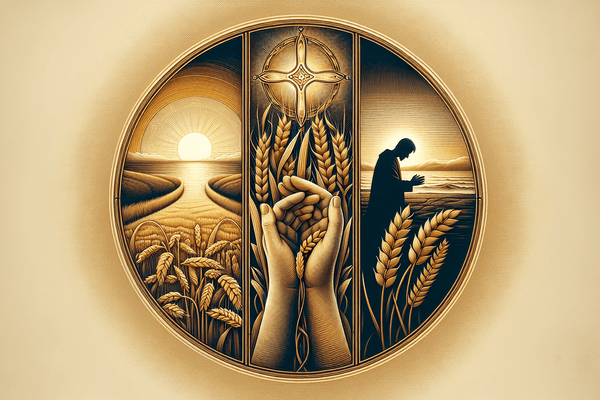The Power of Thanksgiving
Thanksgiving is a powerful expression of our faith, an acknowledgment of God's goodness and providence in our lives. Scripture encourages us to 'give thanks in all circumstances; for this is God's will for you in Christ Jesus' (1 Thessalonians 5:18). This act of gratitude is not merely a response to positive outcomes; it is an attitude we carry in our hearts, regardless of our situations. As we enter God's gates with thanksgiving (Psalm 100:4), we are reminded of His faithfulness and steadfast love. Thanksgiving leads us to a place of peace, where we can present our requests to God with a grateful heart (Philippians 4:6), and it is a source of joy that shines through us, illuminating our lives with hope (Psalm 106:1). By living in a state of gratitude, we are continually filled with the Spirit, giving thanks to God the Father for everything (Ephesians 5:20), which shapes our interactions and strengthens our resolve to face life's challenges with a thankful heart.
Conclusion
As we reflect on the themes of salvation, thanksgiving, and prayer, we recognize the depth and breadth of God's love for us. Salvation offers a new beginning, a chance to live a life reconciled with God and filled with purpose. Thanksgiving grounds us in the reality of God's unceasing goodness, even amidst trials. Prayer connects us to the divine, allowing us to communicate with God and receive His peace. These principles, woven into the fabric of our daily lives, can transform our perspective and enable us to navigate life with confidence in God's promises. As we continue to explore the Bible and its teachings, we are reminded of the beauty and richness of a life lived in relationship with God, a journey that is ever-deepening and always rewarding.
FAQ
Q: What does Romans 3:23 teach about sin and humanity?
A: Romans 3:23 teaches that all humans have sinned and fall short of God's glory, highlighting the universal need for salvation.
Q: How does John 3:16 describe God's plan for salvation?
A: John 3:16 describes God's plan for salvation as an act of profound love, offering eternal life to all who believe in Jesus Christ.
Q: What is the significance of Jesus' sacrificial death according to Hebrews 9:22?
A: Hebrews 9:22 explains that without the shedding of blood there is no forgiveness of sins, underscoring the necessity of Jesus' sacrificial death for atonement.
Q: How does Ephesians 2:8-9 clarify the means of receiving salvation?
A: Ephesians 2:8-9 clarifies that salvation is a gift received through faith and grace, not by our own works or efforts.






